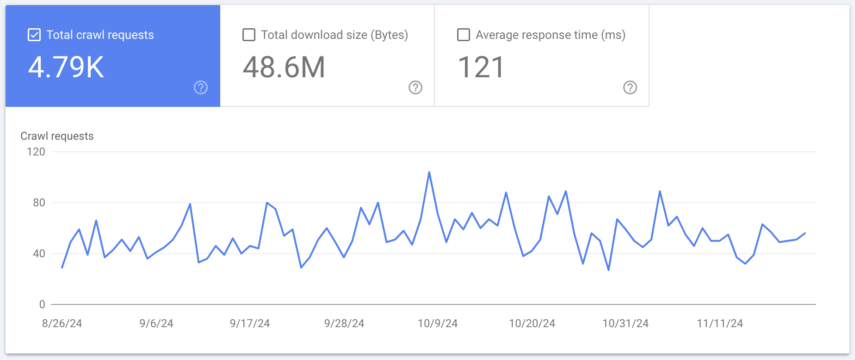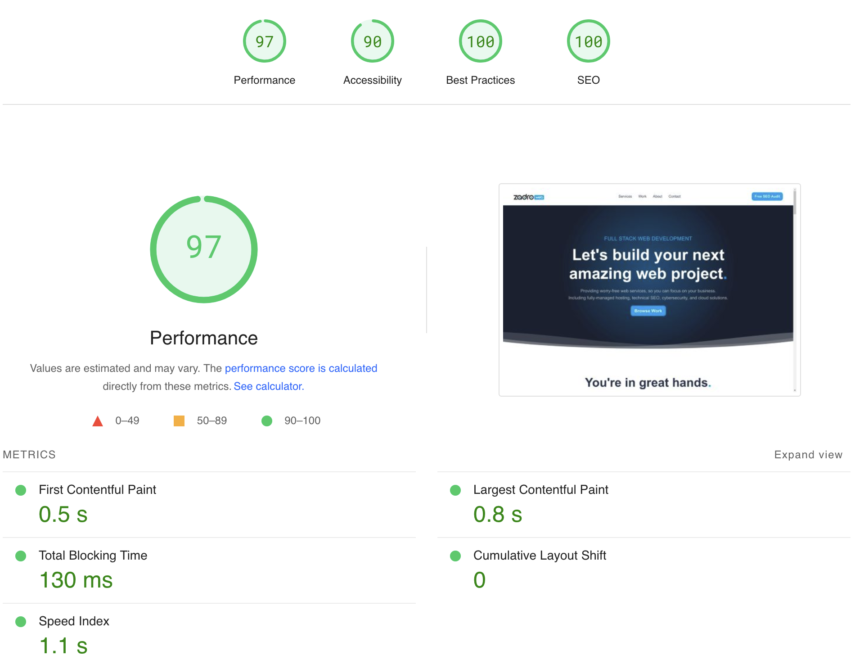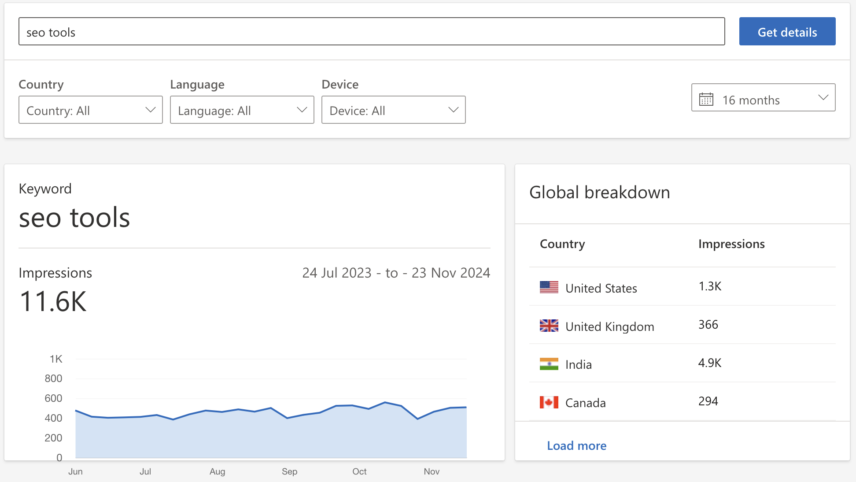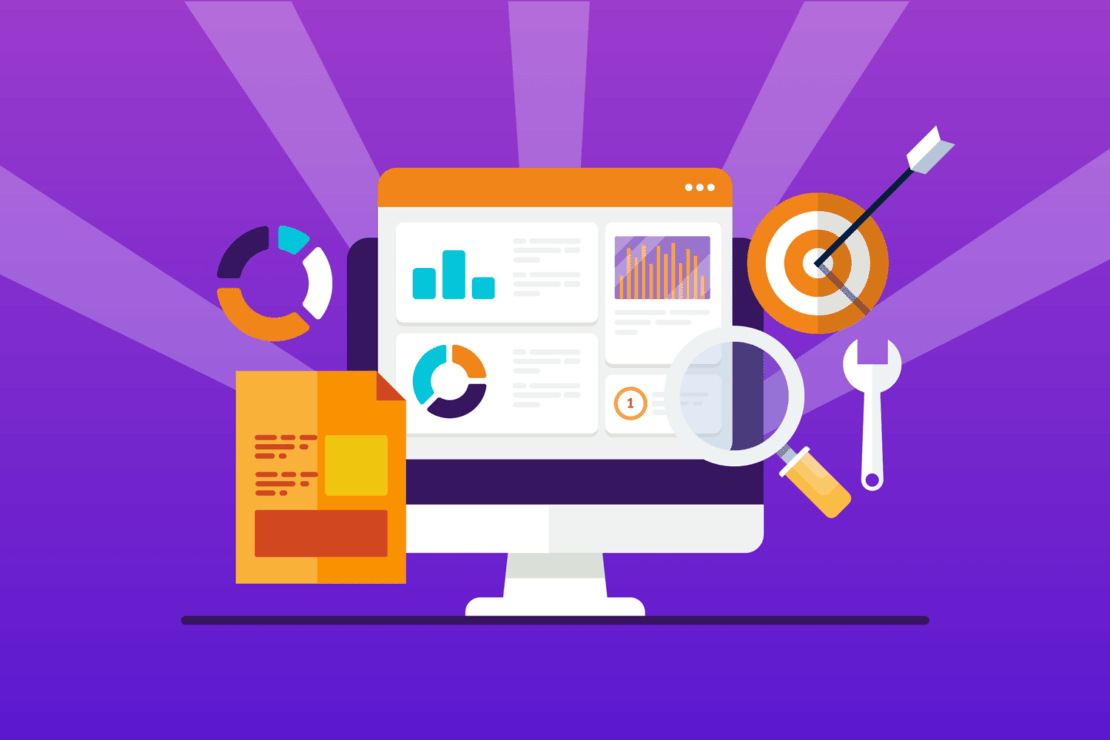Mastering search engine optimization (SEO) in an ever-evolving digital landscape is crucial for online success. With the exponential rise of AI, your website's visibility across search engines and LLMs (large-language models) is becoming more challenging each day. The right tools can make all the difference in navigating this complex field. As the competition intensifies, having access to effective SEO tools is essential.
SEO tools come in various forms, each serving distinct purposes, from keyword research to technical analysis. With categories like webmaster tools, technical SEO audits, and all-in-one solutions, it's important to understand which options are best for the job.
Also, each of the tools seem to increase in price steadily, and it can be challenging to know where to allocate your monthly budget. My goal is to provide a comprehensive review of the best SEO tools available today, with a window into backlink data and other valuable metrics.
Let's get started!
Essential SEO Tools
Evaluating SEO tools involves considering several critical aspects. I often look for a user-friendly interface to navigate the tool efficiently. Data accuracy is paramount; no one wants to base decisions on faulty data (more on data later). But first, let's discuss the essential SEO tools everyone should be using -- and are free!
Webmaster Tools
This category is vital for monitoring and maintaining your website’s overall performance. Google Search Console, one of the most popular options, offers valuable insights into your search engine results and technical issues such as crawl statistics and errors. These tools enable you to submit your sitemaps, check indexing status, and monitor critical events such as changes in traffic.

These crawl stats show that Google checks in regularly, which is what we want. We also see an excellent server response time -- page speed and overall page experience are great for SEO.
And if you haven't already, make sure to take a look at two other webmaster tools offerings: Bing and Yandex. Each of these tools provides unique perspectives into your website's general health, and if you're a beginner in SEO, these tools will go a very long way at the start.
Page Experience & Page Speed Tools
It's highly critical to note that page experience is a ranking factor and must be taken seriously. Nobody likes a slow website or poor browsing experience. Using tools to evaluate your page speed is another essential SEO action item.
First up is PageSpeed Insights by Google. Simply head over to that link and enter your website, then hit analyze. In a few seconds, you'll have a snapshot of your website's core web vitals.

And, if you look further down after the metrics, you will find a plethora of optimization suggestions to reduce unnecessary resources, check your accessibility standards, and suggestions for improving SEO -- imagine that! With this tool alone, a lot of heavy lifting for technical SEO can be assessed and properly implemented.
I wrote an article many years ago on various website speed tools (which can use an overhaul). Regardless, I encourage you to take a look at it to dig into this essential concept further.
Keyword Research
Wait, can you do keyword research with free tools? Yes! The free tools are nowhere near as robust as paid tools, but the basics of finding search volume, related keywords, and more can be done.
Above, I mentioned using Bing Webmaster Tools. Did you know it had a keyword research section? It's fairly robust, actually. Take a look at the data you can get.

Bing Keyword Research will even show you the top 10 ranking URLs for the keyword you're searching to help with competitor research. I'm not going to cover competitor research in this article, but it's another essential cornerstone of SEO.
Another great free tool for keyword research is Spyfu, which is actually one of my favorites. I will look to review Spyfu in a separate article.
Technical SEO
There are many SEO tools here as well. Our very own SEO Auditor is completely free and provides many basic SEO details to help uncover many errors. Many other technical SEO tools also provide detailed reports on site performance, identify technical issues, and ensure your website is optimized correctly.
These tools address aspects like site speed, mobile-friendliness, and metadata, ultimately improving user experience and boosting search visibility. Regular technical audits can prevent issues that impede site performance and ensure alignment with search engine guidelines.
And, by far, the most well-known crawler to help with technical SEO is Screaming Frog, which is free for up to 500 URLs.
Analytics
And least, but not least, is having a web analytics tool as part of your essentials. Google Analytics is the leading go-to, but plenty of free options exist in this category. Matomo (formerly Piwik) is the leading alternative option for analytics. It requires self-hosting to utilize the free version, but it's packed with features. It even includes a built-in "Tag Manager" option. I highly recommend it.
Limitations of Free SEO Tools
While free SEO tools can provide a strong foundation for improving your site's visibility, they have limitations. It's important to weigh these limitations against the features offered to ensure you're meeting your website’s SEO needs.
- Limited Data Access - Free tools often provide limited data compared to their premium counterparts. For instance, detailed reports or extensive competitor analysis might be restricted, which can hinder your ability to gain in-depth insights.
- Feature Restrictions - Many free tools might restrict access to advanced features such as comprehensive SEO tool functions or advanced competitor analysis, making it challenging to fully capitalize on SEO opportunities.
- Data Accuracy - Free tools may not always guarantee the most accurate or up-to-date data, especially when compared to paid alternatives that typically offer more frequent updates.
- User Support - The level of customer support available for free tools is often limited, which might be problematic when troubleshooting complex issues or optimizing your SEO strategy.
- Scalability Concerns - As your website grows, the limitations of free tools may halt your progress. Free options may lack the capabilities needed for handling larger volumes of data or adapting to evolving search engine algorithms.
Despite their limitations, free SEO tools are excellent for getting started and mastering the essentials of search engine optimization. As your proficiency grows, you might consider integrating paid solutions for a more robust SEO strategy.
Best Paid SEO Tools for Professionals
Premium SEO tools offer valuable insights, user-friendly interfaces, and comprehensive capabilities, enabling advancing SEOs to improve their search engine rankings, track keyword performance, and most importantly, build a robust backlink profile. Let's dive into some of the leading paid SEO software tools that can assist in harnessing organic traffic, optimizing content creation, and addressing technical issues. Let's also dive into basic features, pricing, and one critical comparison across all the tools: backlink data.
But before going into backlink and price comparison data, let's me share my overall thoughts on each of the professional tools.
Ahrefs: The King of the Hill
First up, is the SEO tool I use the most. The UI with Ahrefs is clean and the layout just makes sense. Maybe I feel that way because I've been using this tool since 2014 on their Legacy Plan. And, with them recently notifying me that I need to upgrade, I wanted to see which tool ranks supreme from a data standpoint. Specifically, I will be comparing backlink data.
From a keyword research standpoint, I have yet to find a tool that compares to Ahrefs's Keyword Explorer. I can upload a list of keywords, and it will compile and organize the keywords into categories that, again, just make sense. And, I absolutely love their alert emails for rank tracking, mentions, and backlinks.
The one place that really lacking with Ahrefs is client reporting. Also, API access is only available on their Enterprise plan, after their pricing update. I would love to explore their v3 API, but unfortunately, that price point is out of reach at this time.
Ahrefs does have a somewhat hidden starter plan for $29/month that is great for beginners.
SEMRush: Versatile Tool for All SEO Needs
This is another tool I've used for quite a while, since 2013. And, I wish I can say the same for the user interface as Ahrefs, but SEMRush seems to change their interface every few months. Navigating the User Interface (UI) takes a bit more work.
SEMRush also had a similar keyword research feature as Ahrefs, but about 5 year back, they "streamlined" their keyword research into their "Keyword Magic Tool", and I never got used to it. In other words, I rarely use it. However, if you want to go deep into a single keyword search, there's massive data available to explore!
One annoyance is they continue to remove "core" features and re-brand them as add-ons. Two examples are their Social Media Tools, and most recently, white-label reporting on their Business plan.
However, they do reign supreme as the best all-in-one SEO tool, if you're looking for the most features in one tool. Also, I do prefer their SEO audit feature set over Ahrefs, as this is a place where their UI really shines. Another unbeatable feature is their reporting tools. Building and sending monthly SEO reports is a breeze.
Finally, SEMRush's API is incredible. It's currently what drives the organic keyword list in our SEO Auditor tool.
Moz Pro: Insights and Unique Features
Moz is where my SEO journey started over 10 years ago. I have attended many MozCon events in the past, and they have been instrumental in the early days of learning SEO. And while I haven't used Moz Pro in quite some time, I decided to give them another look recently. I'm happy I did--Moz Pro has come a long way with their feature set, especially their API tools.
Moz Pro also has unique features the other tools don't have, such as their On-Page Grader and Insights section. The On-Page grader will show some SEO quick wins, similar to our SEO Audit Tool. And, the Insights section helps to get right into potential missed link opportunities and other key findings.
Majestic SEO: Affiliate Super Tool
To be fully honest, I haven't used Majestic and a very long time and don't have a subscription. When I was building PBNs (private blog networks), Majestic was an invaluable tool. Their Trust, Topical, and Citation flows are incredibly helpful to uncover "spammy" domains. If affiliate SEO is your jam, you definitely want to utilize Majestic for those features. Also, their API features are limited to internal use only -- if this is important to you.
Serpstat: Worth a Fresh Look?
Next up is a tool that doesn't get as much exposure as the other "big four" that I've mentioned. Serpstat offers a robust suite of features, making it worth a fresh look for those searching for a cost-effective, comprehensive SEO tool. Every time I dive into Serpstat, it feels like I've stumbled upon a treasure chest of seo tools designed for small businesses.
Some features that stand out are their keyword research tools and robust competitor analysis capabilities. And while I haven't used their AI content tools much, it's been handy for AI detection, meta title, and meta description generators.
Backlinks (and Keywords) Comparison
Ok, finally. Let's get into backlink data to help uncover which of the tools above has the most robust and comprehensive list of backlinks. After all, backlinks are a critical component to the metrics search engines use to evaluate trust, authority, and relevance.
For the research and comparison, I'll simply use this primary domain: zadroweb.com (as of December 2nd, 2024).
As an added bonus, I'll also compare the number of organic keywords found on each of the tool sets.
| SEO Tools | Backlinks | Referring Domains | Keywords |
|---|---|---|---|
| Ahrefs | 3,446 | 574 | 793 |
| SEMRush | 4,027 | 813 | 293 |
| Moz Pro | 7,675 | 1,104 | 236 |
| Majestic SEO | 10,365 | 396 | -- |
| Serpstat | 2,580 | 350 | 543 |
As you can see, Serpstat is the lowest with backlinks data, which is what I anticipated. And, it's important to note I'm showing "fresh" index data with Majestic. If I use "historical" index data, the numbers are into the 100's of thousands.
And wow. I have to say, I'm pleasantly surprised with Moz Pro!
Choosing the Right Tool for Your Needs
Selecting the appropriate SEO tool is crucial to crafting an effective SEO strategy. Whether you're focusing on increasing organic traffic, improving keyword rankings, or analyzing competitor strategies, the right tool can make a significant difference.
But I must say, backlink data should be a top priority. It's where you will uncover opportunities such as properly redirecting 404 pages. SEO simply cannot be done properly without comprehensive backlink audits.
Before making your selection, it's important to clearly define your SEO goals. Pricing should also be a consideration, and the current prices are below.
| Ahrefs | Semrush | Moz Pro | Serpstat |
|---|---|---|---|
| Lite $129/month | Pro $139.95/month | Starter $49/month | Individual $59/month |
| Standard $249/month | Guru $249.95/month | Standard $99/month | Team $119/month |
| Advanced $449/month | Business $499.95/month | Medium $179/month | Agency $479/month |
| Enterprise $1,499/month | Custom Contact Sales | Large $299/month | Custom Contact Sales |
Please note that exact prices, features, and discounts may change over time, so always verify on each provider’s official website for the most current information.
AI: Future Trends in SEO Tools Market
Looking at future trends in search engine optimization (SEO), staying on top of technological advancements is crucial for maintaining a competitive edge. AI-powered SEO tools are revolutionizing the way businesses enhance their online presence by providing valuable insights, automating complex processes, and improving user experience.
Some of the tools mentioned are leaning into AI, but there's currently better options for AI-specific features. Claude by Anthropic is geared more toward programmers and helps streamline coding. ChatGPT also does a great job with software development, and it's my current go-to as the most robust. I've just started to experiment with Grok, and I haven't used Gemini much at all.
AI-driven tools also excel at generating keyword ideas and keyword suggestions, including long-tail keywords. This facilitates a more targeted SEO strategy that can tap into specific search volumes and trends. Where I use AI tools the most, currently, is with ideation and data organization. I'll do a deep dive into AI tools at some point!
Conclusion
Choosing the right SEO tools can feel like a treasure hunt. There's a tool for every need, whether you're just starting or you're a seasoned pro. Paid tools like Ahrefs and Moz Pro offer more bang for your buck with detailed insights. But free tools like Google's Search Console are also great to get started. It's all about finding what fits your style and budget.
- Ahrefs: Best for extensive keyword research and organization.
- SEMRush: Good all-in-one tool with robust SEO audits and reporting.
- Moz Pro: Unique features like On-Page Grader and missed link opportunities.
- Majestic SEO: Great for analyzing domain trust, ideal for affiliate SEO.
- Serpstat: Cost-effective option with competitor analysis and keyword research.
AI adoption is shaping the future of SEO tools, making processes more efficient. AI is getting "smarter," helping us save time and make better decisions. This means more time for creativity and less time on repetitive tasks. Whatever comes next, I’m excited to see how these tools will continue to evolve. Keep your eyes peeled for new features and innovations.
The SEO world is nothing if not full of surprises!




